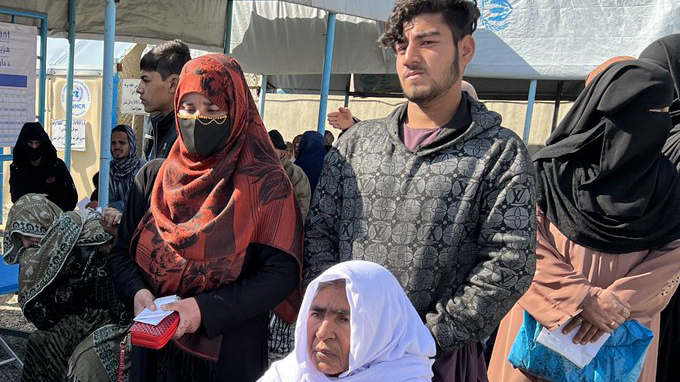700,000 people have lost their jobs in Afghanistan since the Taliban takeover, with agriculture, civil service, and construction sectors the most severely affected, the latest report by the UN Special Rapporteur to Afghanistan has estimated.
Richard Bennett, the Special Rapporteur on the situation of human rights in Afghanistan, in his report covering the period between July and December 2022, stated that around two thirds of households have acknowledged facing difficulties in meeting basic food and non-food needs.
Massive job losses, business closures, and the reluctance of foreign investors to engage in Afghanistan’s economy have had catastrophic impacts on the lives of millions of Afghans.
Afghanistan’s worsening economic decline—reportedly of around 35% last year—has further amplified the humanitarian crisis. “This crisis has been exacerbated by the unintended consequences of political cautiousness and over compliance with (US imposed) sanctions, despite the humanitarian exemptions afforded by the Security Council,” the 20-page report that was submitted to the UN said.
While describing the worsening situation of tens of thousands of civilians, who continue to face the brunt of regime change and post-conflict consequences, the report adds that an “estimated 18.9 million people are experiencing acute food insecurity, a number which is expected to rise to 20 million, and over 90% of Afghans are suffering from some form of food insecurity, with single-parent female-headed households and children being disproportionately affected.”
— OCHA Afghanistan (@OCHAAfg) March 2, 2023
On December 19, 2022, a number of residents of the Sar-e-Pol province in northern Afghanistan demonstrated against forced evictions and the seizure of 6,000 jerib (about 3,000 acres; traditional Afghan measurement) of land in eight villages by the Taliban.
Residents, most of them of Uzbek and Tajik ethnicity, complained that they faced threats from Taliban security for not following the orders. The outcomes of similar incidents of eviction—in Parwan, Jowzjan, Badakhshan, Ghazni, Maidan Wardak and Daikundi provinces—has remained tense, especially after the Taliban allowed Kuchi and other powerful groups to seize land in the region.
“Around 1,000 families have been forcibly removed from their lands and displaced from several villages in Daikundi Province since September 2021… At least 2,800 Hazara residents were forcibly displaced from 15 villages in Daikundi and Uruzgan Provinces in September 2021 alone,” the report estimated.
While Taliban officials have argued that they have been safeguarding the population and their property, the report found that “schools, places of worship and other civilian locations have continued to come under attack,” a large percentage of them carried out by ISIL-K extremists.
“The Taliban’s response to armed resistance by the National Resistance Front in Panjshir province and other provinces continues to adversely impact civilians in breach of international human rights and humanitarian laws,” the report added.
The report does acknowledge, however, that since the Taliban assumed power, the total percentage of internally displaced persons has fallen significantly. It notes that there were less than 25,000 recorded movements between August and December 2021 and 7,400 as of June 2022.
Even though, broadly, the rule of law and the intensity of violent incidents has remained under control under Taliban rule, the report reiterated how the de facto authorities have imposed restrictions on women and girls which, compounded by the economic and humanitarian crisis, have resulted in negative coping mechanisms such as suicides and forced and child marriages: “As many as 1,855 grave violations were committed against children between January and September 2022,” the report pointed out.
Besides giving policy recommendations, the report also raised serious concerns about the increased targeted killings of members of the former Afghan National Defense and Security Forces, allegedly by the Taliban. Similar apprehensions have been raised in a report that claims that the Taliban has gained access to US biometric data, which they are utilizing in tracking down those who formerly worked with the US government.





